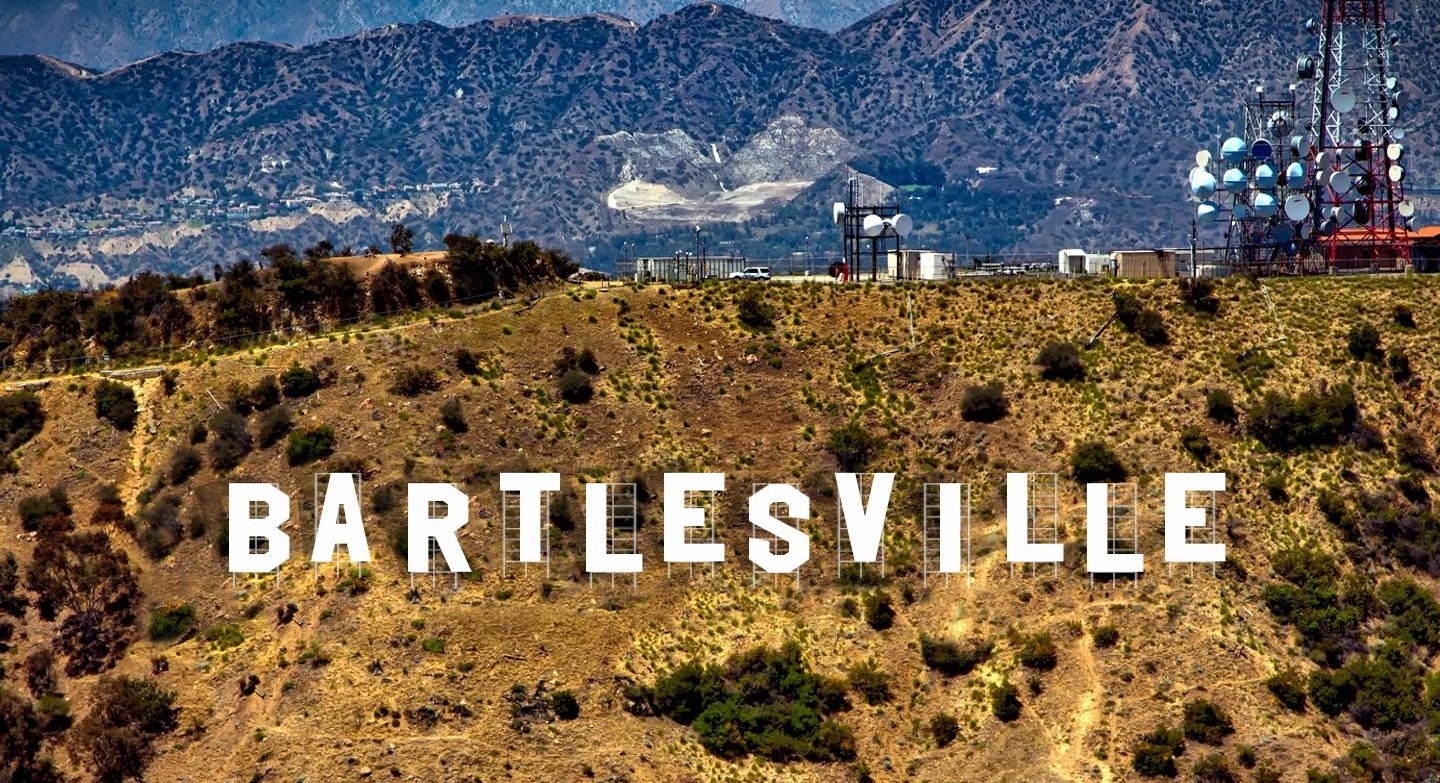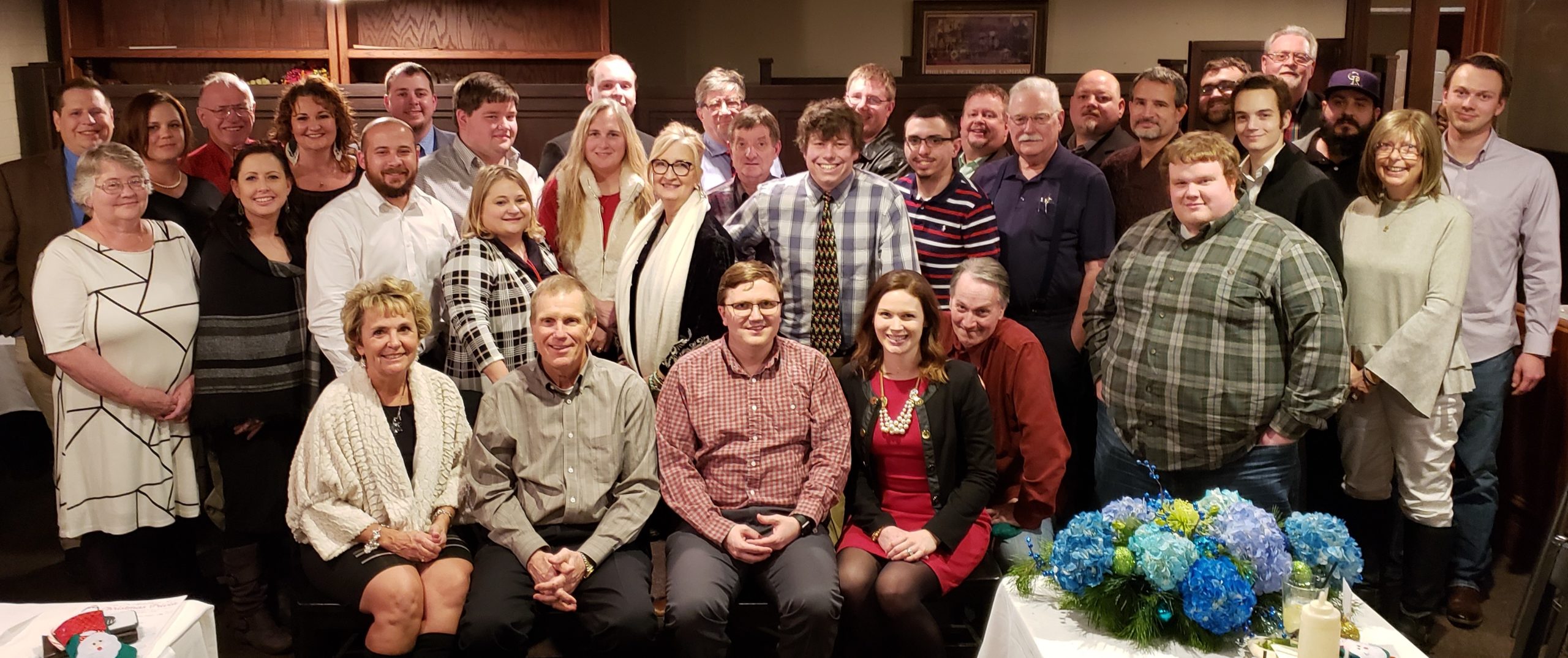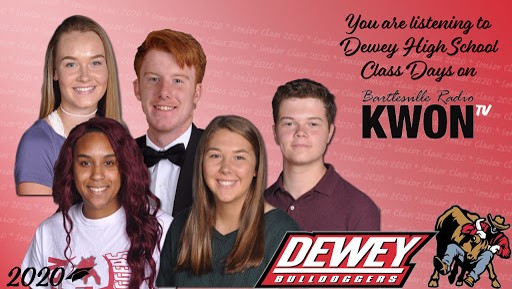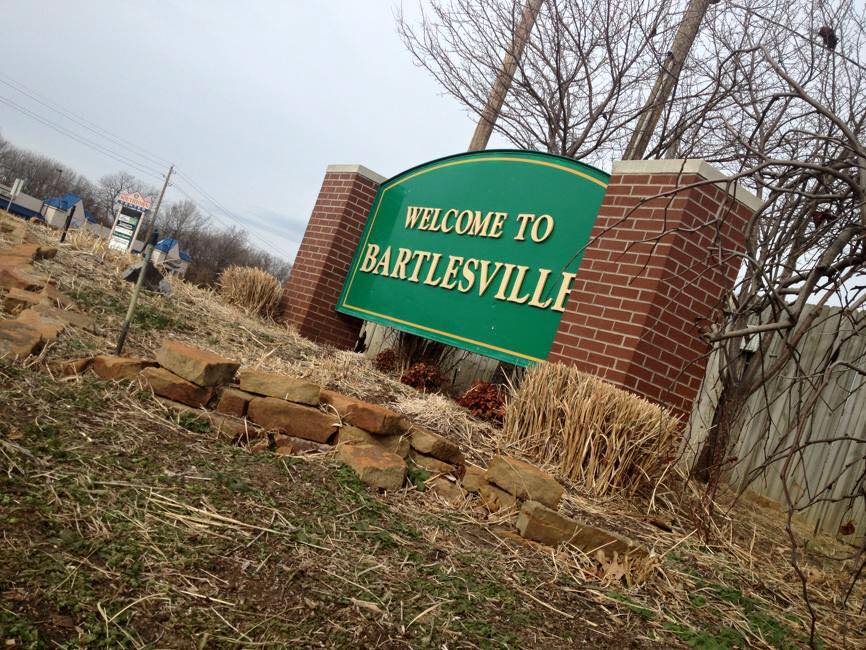
We admittedly spend a lot of time in this blog talking about macro radio trends, often focusing on the largest markets. PPM is a regular topic, as is tracking what the biggest broadcasters are up to in the nation’s most populated cities.
But so much of what is happening in radio – especially since the pandemic – is very much a local issue. Whether in Boston or Bartlesville, you’re dealing with the virus, a cratering economy, a controversial election, and other issues impacting all Americans.
Where’s Bartlesville, you ask? It’s an Oklahoma town of about 35,000, about an hour north of Tulsa, just south of the Kansas border. And it’s the perfect look at small market radio in America where the owners aren’t thousands of miles away in a skyscraper in the middle of a big city metropolis.
Today’s blog post is a conversation with the Potters – Kevin and Dorea, and their son Kaleb. Dorea was born into a radio family – her parents, Frosty and Joan Mitchell owned stations throughout Iowa.
Now, with their son Kaleb, the Potter-Mitchell empire also covers newly acquired stations in Coffeyville, Kansas (pop: 9,300) as well. Kevin and Dorea are not just award winning broadcasters. They are fixtures in their community, active in numerous organizations and serving on multiple boards.
Paul Jacobs took the opportunity to talk to the Potters about what it takes to thrive in a small market – especially during the biggest health emergency of our lifetime. And as you’ll read, there are lessons about ability, service, adapting, and innovation that have value for broadcasters in any size market. – FJ
Paul: You are very proud of your staffs. Talk about your teams in Bartlesville and Coffeyville.
Kevin: We have two separate operations divided by the state line. Our family has had the Bartlesville operation since the mid-90’s. In 2016, we purchased a group of radio stations in SE Kansas.
We have 24 staff members in Oklahoma including five content creators or news people. In Kansas, we have 14 team members and four content creators, people to cover the news and serve our communities.
Our staff is like family to us, too. They are loyal and believe in what we do. It takes a full team to achieve what we do.

Paul: How has the COVID-19 pandemic impacted your business and your community?
Dorea: It has made us better! We immediately had to make adjustments in every aspect of our business. The safety and health of our staff was #1, or we couldn’t continue to be the voice of our community. Our office and on-air staff continued on-site with more sanitation, masks, and social distancing. Our sales staff began working from home.
Kaleb: Our service area is heavily reliant on oil and gas, agricultural and aviation. Not a good combination in today’s economy. Our business took a major hit from casinos, sports, events and car dealers early on, but our staff got creative and we challenged them early on for promotion ideas to help close the gap.
Fortunately, Oklahoma was one of the first states to open up and we hope to get back to a new normal in the next few weeks.
Paul: What message did you deliver to your staff about serving your communities and your advertisers when the COVID-19 outbreak hit your area?
Kevin: We told our staff we are needed now more than ever. We are the voice of our community – the local newspaper staff is almost non-existent and when it does come out, it’s history not news. Magazines and billboards can’t do it. Our TV partners are focusing on a larger coverage area – so we must be the local voice. It’s up to us.
“We are here to prepare you, not scare you” became our on-air mantra. “KWON – The One You Trust” is our slogan. So we double-downed on getting out the word with accuracy and immediacy, using actualities, not our opinions. And not just on the air, but in a variety of ways – on our website, on our app, on kwontv.com and on Facebook.
Kaleb: We have always said our group of radio stations is the only “local” left in our communities. COVID-19 has given us the opportunity to show non-regular listeners what we have been doing all along.
We challenged our news and on-air people to make their on-air segments as local as possible. Radio is supposed to be your companion in the front seat of your car.
We want our listeners to know, every time the mic is open that the person is LIVE and in Bartlesville, Oklahoma, or Coffeyville, Kansas.
Our news team in Bartlesville has consistently written and produced over 100 news stories per week since COVID-19 impacted our community in mid-March. They capture pictures, audio, video and share content on multiple platforms.
I do not know any other local media outlets, newspaper or radio stations, that have created that magnitude of content in small town Oklahoma or Kansas.
Paul: What changes did you make in your programming, promotion, and sales efforts when the virus hit?
Kevin: When Congress was talking about PPP, the Payroll Protection Program, we were setting up how we could best communicate it to our listening audience. The Monday it was announced, we had a banker and accountant on our morning show giving details when the application window wasn’t even opened until that Friday. We broadcast it on-air, streamed it on kwontv.com and Facebook Live. It was shared as much as anything we did.
Dorea: Once schools were closed, we reached out to our area schools to help them create a plan to honor their seniors. We did Class Day programs  where senior class salutes are read by a representative DJ from the senior class, honoring each senior student; we play their music song list, as well as their “Remember When” stories. We did a senior prom on the air and virtually for Bartlesville High School. And, we will assist with virtual/on-air graduations for all our area schools.
where senior class salutes are read by a representative DJ from the senior class, honoring each senior student; we play their music song list, as well as their “Remember When” stories. We did a senior prom on the air and virtually for Bartlesville High School. And, we will assist with virtual/on-air graduations for all our area schools.
Paul: What about the sales department? How have they adapted?
Kevin: I had our sales team continue with the 8am sales meeting, and asked them to be dressed and ready for their day. Daily, we have them go through the details of the day before. This keeps them accountable to their peers and gives the other staff members ideas for what they can also do that day.
We educated our sales staff about how PPP would work. They needed to be sales consultants for when clients might start talking about cancelling or cutting back advertising. They needed to know that businesses had hope to make their payrolls, and why it is important to advertise in down times.
Dorea: Long term sponsorships are a key component to our business. Keeping those intact was a priority. When billing came out at the end of March, we included a stuffer offering a FREE Listing on our website, and Sunrise Reporter (a daily news sheet we produce) to our businesses with a one-liner about their business (ex: curbside service, open hours, etc.).
Paul: So, how’s business? How’s the staff holding up? Are you getting through this?
Kevin: Our business took a major hit because we do a lot with sports and entertainment venues, all of which closed. But we recovered some of that loss by being creative and adding business from the smaller companies and service industries who needed to get the word out.
Our staff has felt empowered because we said from Day 1, we are not doing any layoffs. We needed every one one of them to step up in a big way and make a difference in our community. We needed them to stay safe in all they do because they are important to us being the voice of our community. They take pride in that.
On the news front, they want to be the one to get that great story and make it good. And our sports staff became news reporters, too.
Paul: What kind of creative ideas did staffers come up with?
Kaleb: We asked our staff to get creative early and bring all ideas to the table.
We had a Saturday night request show at our Kansas stations, dedicating each quarter hour to different groups of essential workers. We had prizes and tons of interaction with listeners via text messages and phone calls.
We came up with an Interactive scavenger hunt to promote local businesses. We had them sign up, offer a prize, and we spent air time each day promoting their website and Facebook page, providing info about how people could shop local in these unusual times.
 The “Shut-In Songbox” was an idea that came to us from a group of guys that play a “Name That Tune – Bingo” at local restaurants and bars. They came to our sales manager and asked if it could be done on the radio. We quickly came up with a plan, and we’ve had up to 1,500 players on a Thursday night. People have sent us pictures of the family gathered around the radio playing Bingo for an hour on a Thursday evening.
The “Shut-In Songbox” was an idea that came to us from a group of guys that play a “Name That Tune – Bingo” at local restaurants and bars. They came to our sales manager and asked if it could be done on the radio. We quickly came up with a plan, and we’ve had up to 1,500 players on a Thursday night. People have sent us pictures of the family gathered around the radio playing Bingo for an hour on a Thursday evening.
Religious services and other technology consulting. We have filled our stations on Sunday morning with church services. What has surprised me is the amount of calls our team has fielded on “tech questions” from churches. When they run into snags, they “call the radio station because they will know.” It goes to relationships and helping local businesses communicate in crisis. We are not always just an “advertising expense.”
Paul: What are the advantages of being a small market during a global pandemic?
Kevin: You can control your own destiny. We have never relied on agency business. It’s always been about the relationships we have with our friends and  neighbors. They recognize we are doing all we can to serve them and they feel a loyalty to us as well.
neighbors. They recognize we are doing all we can to serve them and they feel a loyalty to us as well.
We have wonderful partnerships, too. I have consulted often throughout this pandemic season with Oklahoma Association of Broadcasters’ Vance Harrison and Griffin Communications’ David Griffin to strategize how broadcasters can best serve and meet the needs of our communities. This has been invaluable.
Kaleb: Small market radio relies on relationships, and good radio broadcasters know relationships matter. Whether that is the personal relationship listener, customers, or politicians so you can get the story first. I have had customers call and let me know they are continuing their advertising buys because of the work our team has put in.
Paul: Are there any changes that will remain in place long after the pandemic eases?
Kevin: We have stepped up our use of technology, and we will be better for it. We have developed new relationships with some businesses and churches that we hope will become long-term clients.
Paul: And the biggest takeaway so far?
Kevin: You have to serve…and be local…to be successful. You have to serve more…and be even more local…to be more successful.
Our staff has responded in 2020 to meet the needs presented to them. The community has recognized it. We can confirm that by our increased numbers on the app, on our video stream and on our website.
Final thoughts…
Radio is radio. . . whether you’re in a big city or a small, unrated market. The core aspects of the business – service to the local community, being attuned to customers and listeners – remain intact whether we are in good times or bad. Congratulations to the innovation and commitment of our friends in Bartlesville, reminding us what makes radio great and what will keep it sustainable for years to come. – Paul
- Simply Unpredictable - April 10, 2025
- Flush ‘Em Or Fix ‘Em?What Should Radio Do About Its Aging Brands? - April 9, 2025
- Radio: It’s Time To Stop Playing Small Ball - April 8, 2025




I began my career in Bartlesville at KWON in 1968, under a very different owner. It was a tremendous education in broadcasting and life. While I don’t know the Potter family, I applaud them!
Bartlesville is a wonderful small city. I made tremendous memories there, maintain friendships to this day. And the lessons I learned there at KWON, I carry with me even today.
Thanks for chiming in, Randy. Some of the best experiences come from starting in those small markets where radio matters.
Virtual high-fives and elbow taps to the Potter family and the staff. Paul/Fred, an inspiring post today. Thanks!
Thanks, Ron – they’re a credit to our industry.
Hey Kevin, you look good and glad you are doing well. Jim Paul Monmouth
Wow. So many great ideas in this post. Kudos to the whole family for figuring out how to win!
Matt, they’re really doing great radio at a critically important time.
Excellent lessons here. It’s still about hitting “the curve ball”.
Indeed.